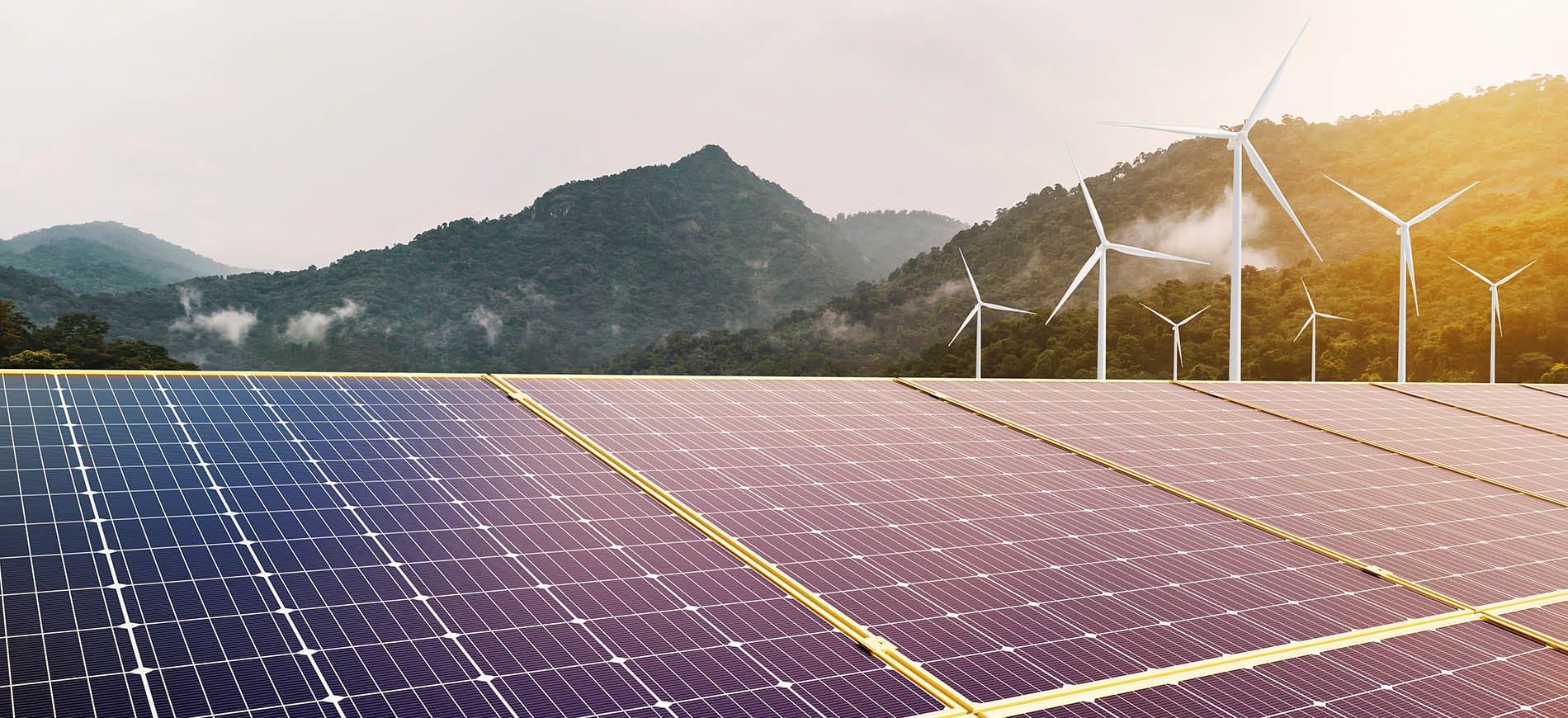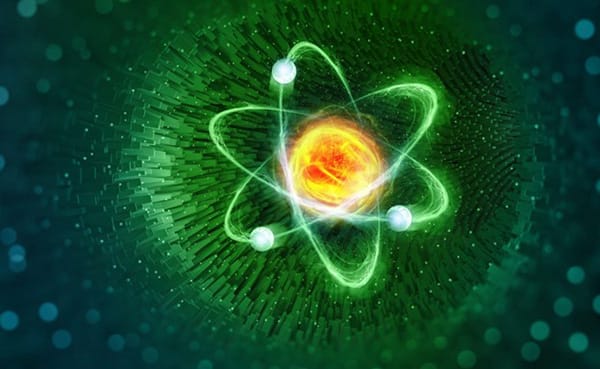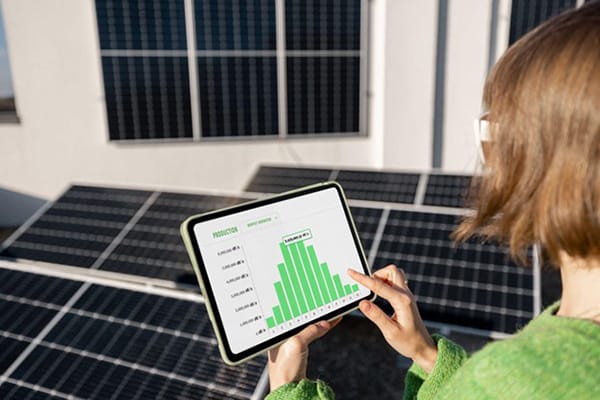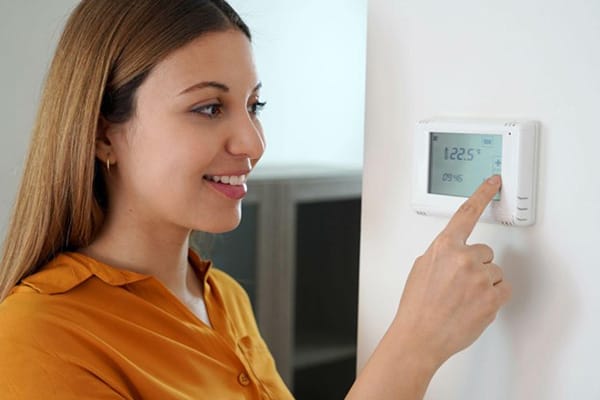From powering the cars that take us to work to sending people into space, energy impacts everything around us. But with rising fuel prices and increasing concern about climate change, people are looking for ways to use less of it.
What does energy conservation look like, and why is it important? In this piece, we’ll first cover some of the basic physics (don’t worry, there’s no math!), then we’ll broaden that into a discussion of why energy conservation is important and how you can reduce your overall power consumption.
Time to get going!
What Is the Law of Conservation of Energy?
Let’s begin with a discussion of the physics involved in energy conservation so it will be easy to understand why reducing your energy use and energy costs is important. This will also provide us with the scientific context to understand the energy systems involved.
The law of conservation of energy is a principle that informs a great deal of work in physics and chemistry. It states that there is an equivalence between a system’s energy before and after it has performed an action or done some kind of work.
So, for example, if you’re pushing a boulder up a hill, you can measure the energy in the system after you’re done, and it will be roughly equivalent to the energy in the system before you started plus whatever energy you put into getting the boulder to roll.
This law is sometimes pithily summarized as “Energy cannot be created or destroyed.” Though this formulation is true as far as it goes, it misses important facts about physics, such as that energy can be transferred from one object to another. You can see this transferal at work when you knock over a domino and it topples the next one. In this case, your initial input of energy into the system is passed on to each successive domino until they’ve all fallen over.
Why does this matter? It informs our reasoning in useful ways. To use one common illustration, a perpetual motion machine is impossible even in theory because it would violate the law of conservation of energy. When you set a machine in motion, there is inevitably some energy lost, such as when friction creates thermal energy that radiates away in the form of heat. That lost energy has to be made up by adding more energy into the system from an external source (burning fuel from a retail provider, for example), and that means the “perpetual” motion machine isn’t so perpetual after all.
What Is Energy Conservation?
Energy is one of the most important basic commodities in modern civilization. Whether you’re turning on a lamp to read at night, charging your electric vehicle, or powering an entire complex of commercial buildings with a small nuclear reactor, you’re making use of energy.
But we don’t have access to an infinite supply of energy resources. Energy conservation refers to any technique that lets you reduce your amount of energy consumption. This might require upgrading the insulation in your home, so you need less air conditioning or simply turning off lights when no one is in the room.
Using less energy through these energy conservation methods can not only contribute to a cleaner planet, but it can also reduce your energy bills through energy savings.
Enter your ZIP Code and compare electricity rates
What Is the Difference Between Energy Efficiency and Energy Conservation?
Though they’re related, energy conservation and energy efficiency are not the same thing. Conservation refers to any energy management practice that allows you to reduce the amount of energy that you’re using. Efficiency means getting more out of the energy that you’re using, without necessarily implying a reduction of your total energy consumption.
Say you keep your less-efficient light bulbs but make a concerted effort to turn them off when you leave the room. That would be energy conservation. Suppose instead that you replace those bulbs, but you wind up leaving them on more often, so the quantity of power you use is the same. That would be energy efficiency.
In the former case, you saved energy, and in the second case, you used the same amount of energy more efficiently. If you both replace the bulbs and make an effort to turn them off when they’re not in use, that’s energy conservation and energy efficiency.
What Is Conservation of Energy in One Sentence?
Conservation of energy refers to any attempt to reduce the total amount of power you use, whether that’s by resetting the thermostat, switching to more efficient appliances, or a different method.
Why Is Energy Conservation Important?
There are many benefits to energy conservation, but two of the biggest are extending the supply of fossil fuels we have available on this Earth and reducing our negative impact on the environment.
Let’s discuss each!
Energy Conservation and Fossil Fuels
First, it’s a simple fact that the modern world is powered by fossil fuels like oil, coal, and natural gas. These are finite natural resources that are crucial in maintaining our standard of living, and we need to do everything we can to use them as slowly as possible. Once we’ve pulled the last drop of oil out of the ground, there is no effective way of getting more, so we want to delay that moment as long as we can.
Energy conservation methods allow us to use less energy in total, and that means using less of the fossil fuels that are the ultimate source of our energy.
Note, however, that energy conservation would be important even if we lived in a world powered entirely by solar energy or other renewable energy sources. Because solar and wind power are usually discussed as being effectively unlimited, this may seem counterintuitive, but it’s actually fairly straightforward.
While it may be true that the sun will last billions of years, there’s a difference between how much energy the sun produces and how much we humans can actually use. The sun bombards the Earth with a staggering amount of power, but we’re only able to capture a very small amount of it, so that small amount needs to be conserved.
There’s an incredible chain of technology that turns a photon emitted by the sun into the electricity that allows you to blend fruit into a smoothie. That electricity is a scarce resource even if the sun isn’t, so it still needs to be conserved.
Energy Conservation and the Environment
Another reason why energy conservation is important is that it contributes to sustainability and reduces the damage our activities might be doing to the environment. It’s well known now that fossil fuels create greenhouse gas emissions — especially carbon dioxide emissions — and this contributes to climate change.
When the greenhouse gases are released, they trap more of the heat from the sun inside the Earth’s atmosphere, causing it to gradually warm. These steadily rising temperatures result in many complications, such as melting glaciers, disappearing coastlines, and other side effects, all of which have to be dealt with.
Energy conservation is not the whole story when it comes to mitigating global warming, but it’s a big part of it. By using less energy, we’re directly reducing the amount of fossil fuels that are burned, which reduces emissions, which slows the planet’s warming.
This, together with getting more of our power from clean energy, will help tremendously.
What Can You Do to Conserve Energy?
Given how crucial energy conservation is, you’ll be glad to know that there’s plenty you can do to use less electricity.
One strategy you might use is to find where you have the most energy usage and work on reducing that. According to data from the U.S. Department of Energy, slightly over half (51%) of the energy used by the average American household in a year goes toward heating and air conditioning. By switching to more energy-efficient appliances or otherwise upgrading your HVAC system, you could potentially save a lot of energy and substantially lower your utility bills.
The converse strategy is to search for smaller, more numerous places to make improvements, like switching out all your older incandescent bulbs with more efficient LED light bulbs. This will also help you lower your energy bills.
And keep in mind that you can adopt both strategies at the same time and use even less power.
In addition, there are numerous incentive programs, like tax credits and rebates, that people can take advantage of. Replacing all the lights or the entire HVAC system for a building can be very costly, and state or local governments sometimes have funds available to lessen the burden.
Public institutions in Texas, for example, can make use of the State Energy Conservation Office’s LoanSTAR program to finance projects that retrofit facilities with energy-saving equipment upgrades.
Check to see if any such program exists in your area before you embark on a major energy conservation project.
What Are the Different Types of Energy Conservation Devices?
There are lots of energy-efficient products that you can use in your home or office that will help in your mission to conserve energy. Since appliances are some of the biggest energy users in a home, replacing them with Energy Star-certified versions could be a great way for conscientious energy savers to reduce their footprint.
Here are a few details about specific appliances.
- Air conditioners: Energy Star-certified air conditioners perform better in terms of the amount of energy they use. To get the best performance out of your system, you’ll need to update your furnace at the same time, especially if it’s more than 15 years old.
- Refrigerators: With better insulation and optimized compressor technology, Energy Star-certified refrigerators can be as much as 9% more efficient than the alternatives.
- Water heaters: Hot water is one of the most basic of modern conveniences, but water heating can be an enormous power draw. An Energy Star-certified water heater saves on power by only heating up water when it’s needed.
- Thermostats: A smart thermostat connects to your Wi-Fi and dynamically adjusts its own heating and cooling settings. Smart thermostats can learn your schedule, and even use geofencing to modify the temperature in your house when you’re on your way home.
- Dishwashers: Over the course of its lifetime, a more efficient dishwasher model can use nearly 4,000 fewer gallons of water. Besides conserving a tremendous amount of this important resource, it also saves money.
- Dryers: Most homes in the United States (80%) have a dryer, and if each of those homes were using Energy Star-certified models, each year Americans could shave $1.5 billion off their collective utility bills.
- Heat pumps: Heat pumps are useful in many places. Geothermal heat pumps, for example, are one of the most efficient ways of heating and cooling a space. Energy Star-certified variants are even better, costing $830 less per year than the alternative.
These are some of the equipment upgrades that can reduce your total energy usage.
Energy Conservation Is Important (But It Doesn’t Have to Be Painful)
Using less energy is only going to become more important in the years ahead. Luckily, there are lots of ways you can conserve energy without dramatically reducing your standard of living.
Turning off the lights or resetting your thermostat for when you’re gone are great places to start, and from there you can look into getting more efficient appliances or making sensible upgrades to your home.
In some cases, there are even public programs to help you bear the expense.
With these measures, we can all do our part to mitigate our negative impacts on the environment while preserving important resources, like our remaining supply of fossil fuels.
Brought to you by energysavings.com
All images licensed from Adobe Stock.





